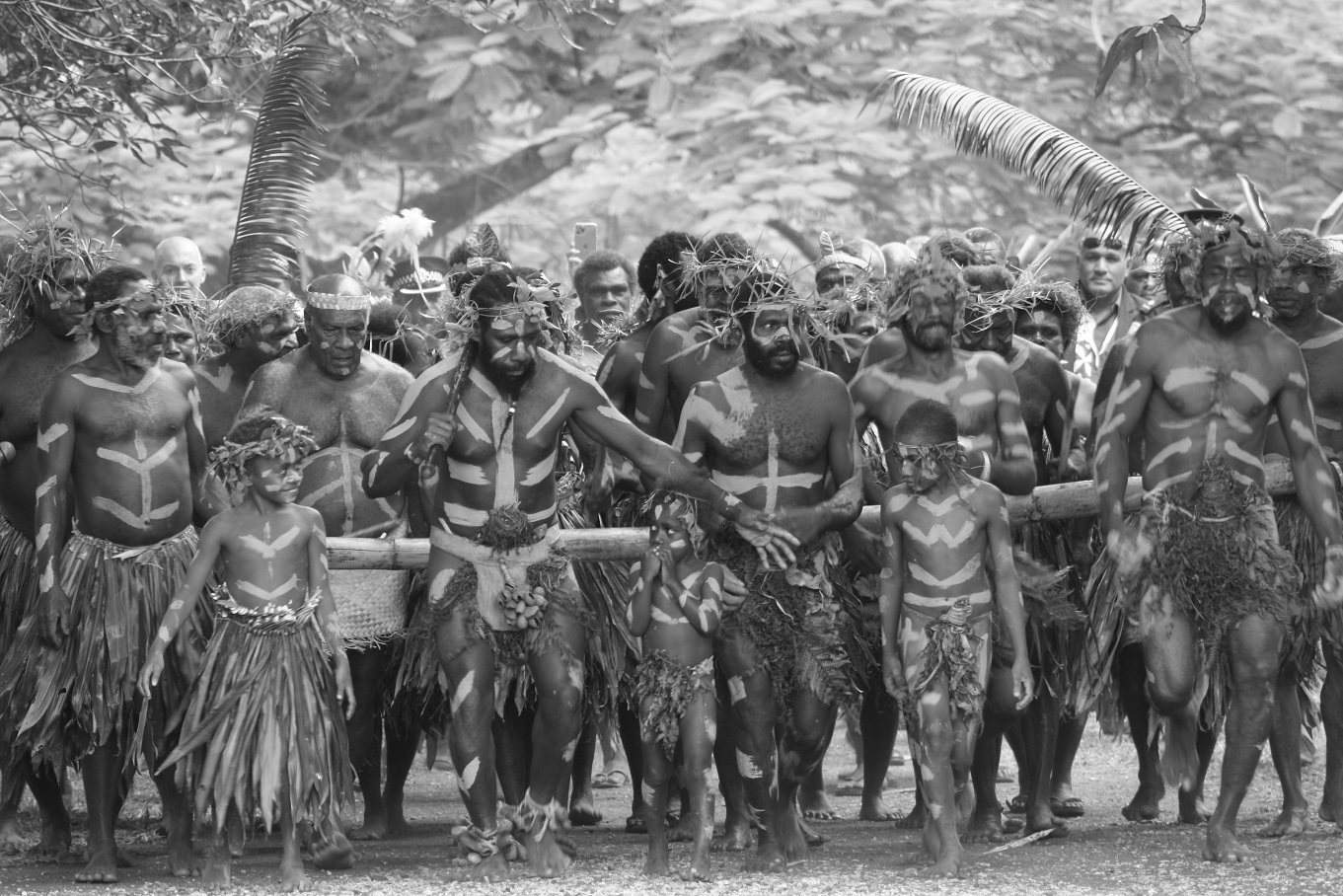Giving a voice to First Nations foreign policy in Vanuatu

Australians are observing NAIDOC Week this week to recognise, celebrate and learn more about the history, culture and achievements of Australia’s First Nations people. This week provides an opportunity for reflection – including for the international development community on how it is implementing First Nations foreign policy objectives, which are firmly anchored in Australia’s revised international development policy released last August.
The Vanuatu-Australia Policing and Justice Program (VAPJP) works hand in hand with Vanuatu’s own constitutionally recognised traditional body, the Malvatumauri Council of Chiefs. Collaboration with traditional justice service providers is increasingly recognised as critical to achieving SDG 16.3 on access to justice for all, to which both Australia and Vanuatu are committed. In day-to-day terms, this means working in a spirit of genuine and respectful partnership, jointly implementing people-centred justice reforms in a complex legal landscape of state and non-state actors.
In this context, Australia’s increased focus on First Nations foreign policy commitments has inspired the VAPJP team to explore ways to further embed the perspectives, experiences and interests of Melanesia’s Indigenous peoples. This includes a stronger commitment to genuine, locally led solutions that aim to deliver sustainable improvements for Ni-Vanuatu communities and professionals through a process of listening, learning and sharing perspectives to discover what works best in the local context.
For example, and building on calls from senior representatives of Vanuatu’s justice sector, the program supports a more holistic approach to professional development in the justice sector that recognizes the central importance of custom and culture. In 2022 and 2023, the team conducted research to guide actions to promote wellbeing across the profession. Wellbeing in the justice sector is increasingly recognized globally as an important but historically overlooked issue. In addition to the well-known stressors faced by legal professionals everywhere, the sector in Vanuatu operates in a uniquely diverse and challenging environment – linguistically, geographically, culturally and legally – that reflects a rich indigenous landscape as well as the country’s English and French colonial histories. The workforce is small, resulting in high workloads and stress levels for most individuals.
There are very few documented examples of efforts to promote the wellbeing of the legal profession in the Pacific. The documented examples have largely focused on one-off psychosocial training and stress management workshops, largely shaped by Western individualistic concepts of mental health and wellbeing that may be inconsistent with the collectivist cultural context of Melanesia.
There is a strong alignment here with the experiences of Aboriginal and Torres Strait Islander Australians, where Western biomedical models of mental health have often been applied uncritically and there is a risk that the importance of culture in healing and wellbeing is underestimated. With Aboriginal and Torres Strait Islander peoples, we are beginning to understand a broader concept of social and emotional wellbeing that recognises health as something holistic, including connection to land, place and spirit, cultural grounding and strength, and the impact of trauma and loss through colonisation. With this in mind, the VAPJP team recognised the importance of ensuring its programs are guided by local models and understandings of health and wellbeing.
During the research process, Jean-Maurice Aite and I (Shirley Viraqwareqware) from the VAPJP research team collaborated with the Warliparingga Aboriginal Health Equity team at the South Australian Health and Medical Research Institute, a leading research unit focused on understanding, monitoring, responding to and reducing inequalities between Aboriginal and Torres Strait Islander communities.
To advance the work of VAPJP, the team has applied indigenous research methods commonly used in Australia and Vanuatu and, based on the emerging local research in this area, used a model that incorporates spiritual and social components in addition to physical and mental wellbeing (the Frangipani Model). The participatory development assessment approach, which aims to include the voices of participants and stakeholders, will refine the model, processes and measures over time.
As we celebrate the culture, customs and achievements of Australia’s First Nations people during NAIDOC Week, we are reminded that policymakers, researchers and development practitioners must continue the dialogue about how we can achieve Australia’s First Nations foreign policy goals. In true partnership with Pacific partners, First Nations perspectives and experiences can add depth and quality to our collective efforts.
Download PDF.
Notice
The Vanuatu Australia Policing and Justice Program is an Australian Government-funded partnership with the Government of Vanuatu.



